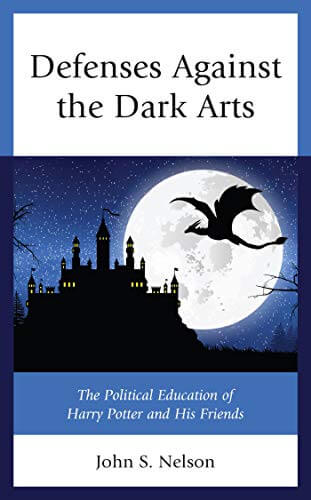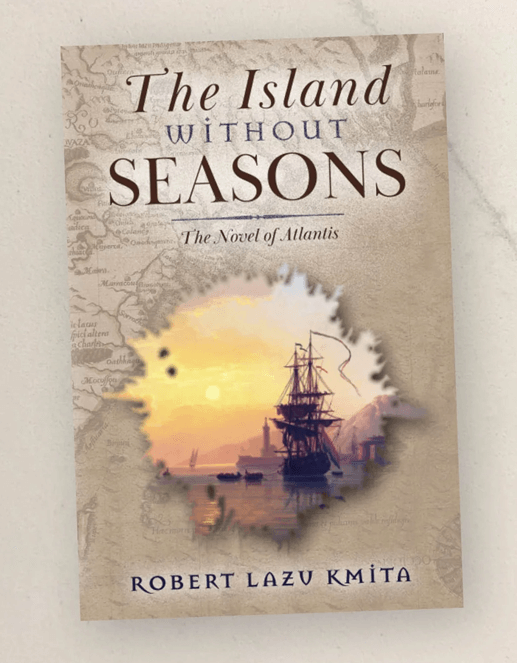Defenses Against the Dark Arts: The Political Education of Harry Potter and His Friends

Defenses Against the Dark Arts: The Political Education of Harry Potter and His Friends. John S. Nelson. Lanham, MD: Lexington Books, 2021.
John S. Nelson’s Defenses Against the Dark Arts is an odyssey traversing all seven of the novels in the Potter series and covering various dimensions or what Nelson calls “angles” of political education from philosophy and ideology to political movements and styles of action. Nelson’s main purpose is to show how the novels contribute to learning about politics because the magical world of Harry Potter is a parallel for our own political times. Although Nelson devotes some attention to exploring political institutions, such as the literal parallel of St. Mungo’s Hospital to the British NIH or Hogwarts as a representation of a liberal institution, his main argument is focused on the decentered politics of post-modern movements including feminism, specism, racism, populism, environmentalism, patronism, and anarchism. He explores how the novels portray politics as a style of action found in individual performance of acts of community in our gestures, habits, choices, and tastes. From Nelson’s reading, the novels also provide an opportunity to discover and think about philosophical ideas and theories, such as Nietzsche’s philosophical perfectionism or Hobbes’s anarchic state of nature, as well as less systematic political ideologies, from liberalism, republicanism, conservatism, existentialism, to authoritarianism and totalitarianism.
To understand these many diverse and multifaceted “angles” of political education in the novels, Nelson divides his argument into two parts. The first part entitled “Pottery” explores the main theme of the dark arts and the perfectionist politics which can be employed either by those fighting against darkness (such as Dumbledore, Harry, and his friends) or on behalf of the perversion of such perfectionism used by Voldemort and his Death Eaters. In Potter’s world, the dark arts represent magic that has an effect on others. It is “dark” because this effect can be without the other’s awareness, consent, or benefit. Practicing the dark arts requires knowledge and practice, something Delores Umbridge later disrupts when she replaces practice with pure theory. Importantly, as Nelson argues, the dark arts are not “evil” (and pure evil is exceptional in this magical world) and Harry must master these arts to survive and ultimately be successful. Nelson sees the essence of Harry’s magic as perfectionist in the sense of pursuing a truly good life without limit by emphasizing vigor, individuality, and a leap of faith in “Just do It.” Yet, because the understanding of the good can be perverted, as Harry’s double Voldemort epitomizes, the dark arts are Janus-faced: they can be noble but also depraved. And defenses against darkness can be an offense. The novels are an education in learning to how to use dark arts not for dark purposes but for love, friendship, and community. It is Harry’s willingness to sacrifice himself that saves him in the end (as was his mother’s self-sacrifice which saved him and created Voldemort’s “eighth” horcrux in the first place). So education and action or practice (including making mistakes) is key to learning when to use a spell, against whom, and why. In other words, since politics is a practice that has an effect on others, it too is a dark art that requires a Pottery education.
The second part, entitled “Polity,” traces the variations of these different political “angles” (philosophy, ideology, movements, and style) across each of the seven novels. For example, in Chapter 7 on The Chamber of Secrets, Gilderoy Lockhart’s desire for personal information allows him to claim fraudulent celebrity. In contrast, Harry’s celebrity is merited. Yet, both kinds of celebrity are connected to forms of populism (which historically emerged with electronic media). The novels also reveal projects of populism as movements and styles of resistance to elites, experts, upstarts, institutions, news media, and politicians. Thus, the student uprising against Umbridge’s new regime is a form of populism on behalf of pluralism and tolerance. Nationalism, especially in the Goblet of Fire, is understood as a set of political movements that teach how difficult it is to recognize a corrupt system from within as well as how such systems corrupt the individual. In another example, Nelson explores Hagrid’s defense of the dispossessed or “Othered” as a perspectivist style of political action that appreciates different experiences and standpoints with care and empathy. Thus, Harry’s political education offers not only ways to identify the signs of dark times but also examples for the readers on what we might do to combat our own dark politics.
Nelson covers tremendous ground in this analysis with his wide range of politics “angles” including ideologies (liberalism, fascism, conservativism, socialism, etc.), movements (feminism, specism, racism, populism, anarchism, etc.), styles (bureaucratism, conformism, elitism, perfectionism, etc.), as well as connecting these various ideas, movements, and styles to the political theory of philosophers ranging from Ralph Waldo Emerson, Thomas Hobbes, Hannah Arendt, Nicolo Machiavelli, to Franz Kafka, Edmund Burke, Giorgio Agamben, and Stanley Cavell to name just a few. Nelson argues the difference between these “angles” are related to expected rigor: for example, ideology is more rigorous in conceptional definition than style which represents a vague cultural convention or sensibility. This means that certain concepts overlap, and the distinctions are not always clear. Thus, liberalism is an ideology but also a style of Dumbledore’s political action. Both perfectionism and existentialism endorse leaping or “Just Do It,” but are distinguished by a leap of choice (existentialism) or vital impulse (Harry’s perfectionism); but as Nelson admits, sometimes Harry does both kinds of leaping, thus making the distinction opaque. Although the mélange of political “angles” may aptly reflect our own political world, with so many concepts and so many which overlap, it is easy to get lost in the many layers of potential nuance. Much more could be said to clarify such distinctions. What is the relationship, for example, between the combined concepts as directives for action of ideologies with the cultural conventions of political styles? Style may be less logically rigorous but if it is the key to Potter education, then does style become ideological if one seeks to use the novels to examine logically such scenes, looks, and deeds?
Importantly, Defenses Against the Dark Arts persuasively argues that novels provide important lessons about politics and political action. In particular, Nelson provides abundant evidence for how Rowling’s novels about a magical world reflect the systematic deceit, demonizing of fellow citizens, and institutional crisis of our own political dark times. Although I would disagree with Nelson’s suggestion that teaching is a form of rhetoric, tailoring pedagogical content to the audience through familiar and beloved stories is an excellent way to spark discussions about political theory, contemporary ideologies, and the courage necessary for examining the good life or using the dark arts of politics to transform the community.




